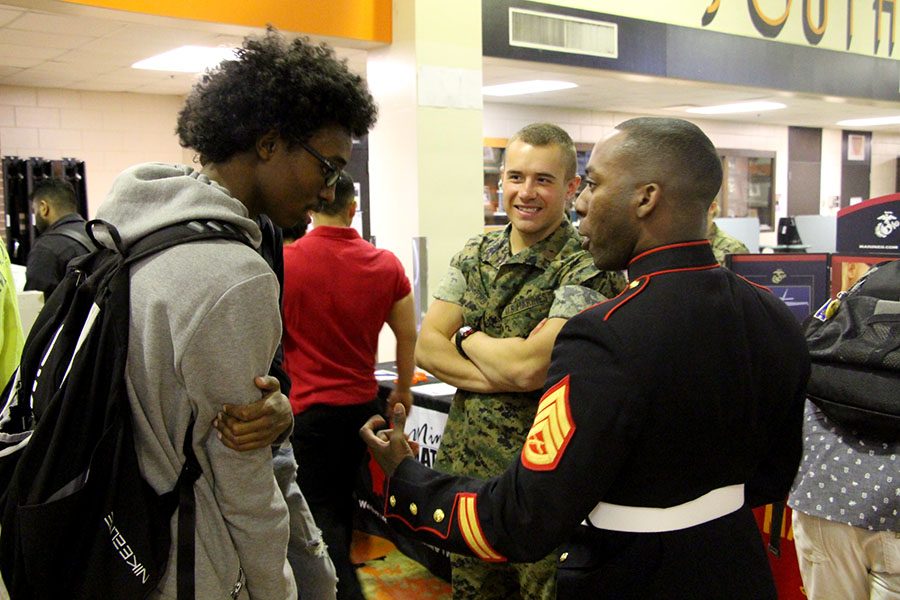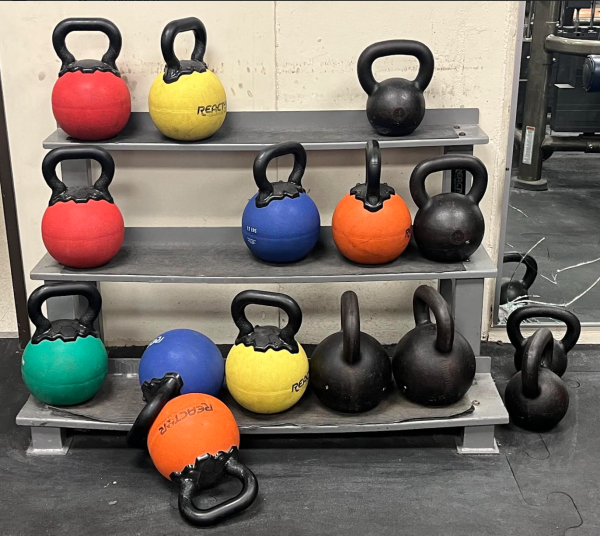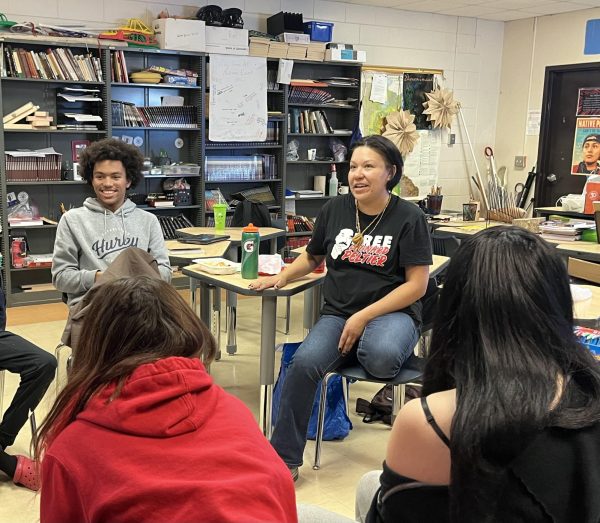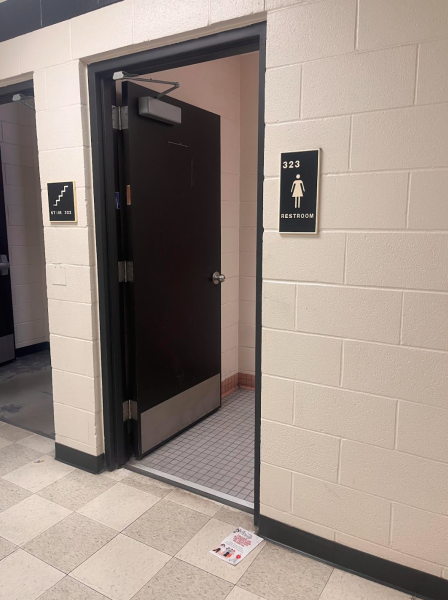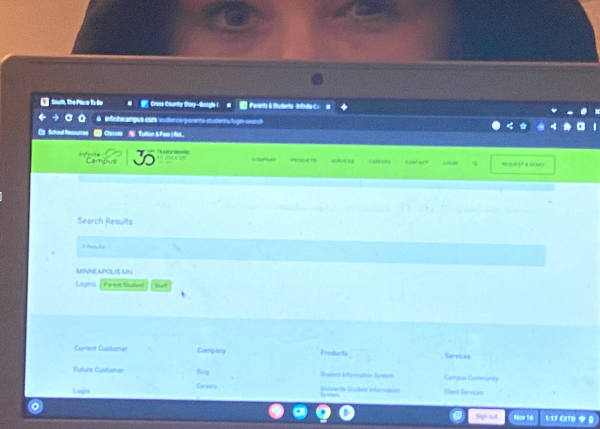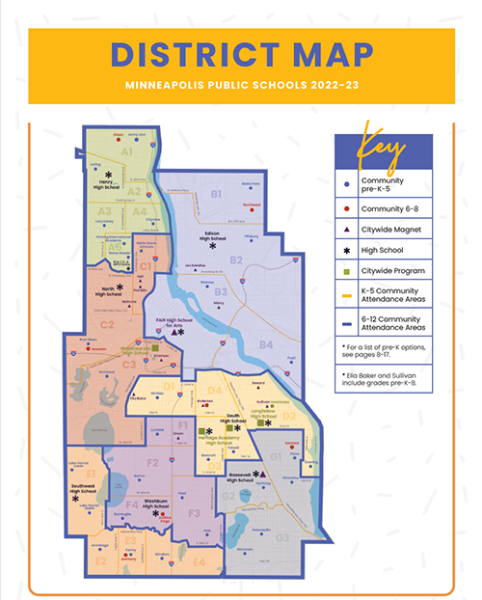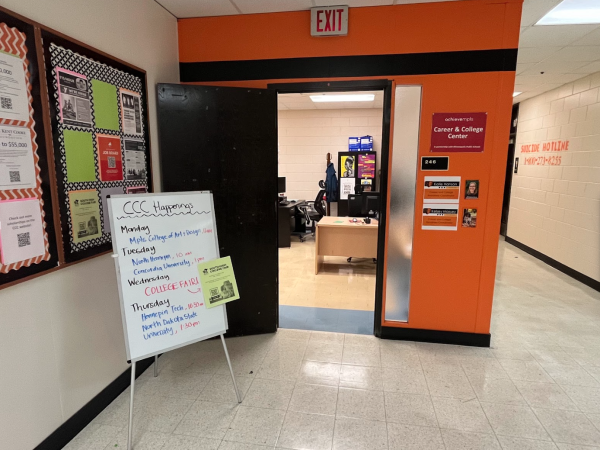Enlistment provides new opportunities for students
Staff Sergent Clevon Clarke and Private First Class Griffin Ruthford, talk to junior Abdifitah Farah about the opportunity that the Marine Corps provides. The Marine Corps are one of the six branches that possible enlistees can choose to go into.
There are both pros and cons of being in the military. Choosing to enlist can be a difficult decision for 17-18 year olds (though at 17 you must have parental consent). Enlisting with the military means you are committing anywhere from two to eight years Active Duty and possibly more. You can also apply for the ROTC (Reserve Officer Training Corps) program that requires an eight year commitment after you graduate from college.
While the commitment to the armed forces can be long, so is the process to enlist. All individuals who want to enlist in the armed forces must take The Armed Services Vocational Aptitude Battery test (ASVAB test) and score at least a 31 out of 99 to be able to enlist. One must also pass a physical exam and take an oath to support and defend the constitution.
Senior Manuel Sosa, who has enlisted in the National Guard for next year, explained that, “it was surprising to me that [it had] a bunch of tests, and they were way more strict than I thought they would be… it was just a little bit intense.”
So why would anyone want to go through the pain that the military includes? Sosa stated that he’s doing it for the benefits. “They have great benefits… [like] free college. They help you with so many things money .”
The payment advantages that come from participating in the Armed Forces are significant. According to goarmy.com, military police sergeants (the military’s form of civilian police) get about $32,000 a year. They also get about $13,000 a year for housing, $4,000 for food, $3,000 for tax advantages, and free healthcare. That rounds out to about $52,000 a year total. On top of this, there is almost always chance for one to rise up the ranks in the military, which would allow pay raises for each advancement.
Marine recruiter Staff Sergeant Cleavon Clark explained that “my insurance is 100% taken care of for me, my wife, and my son. Literally, I don’t pay for anything.” He also stated that he gets about $2,000 every two weeks, and that the Marine Corps pays for his housing and food.
Senior Dutch Franko-Dynes has been accepted to the Army ROTC program at Gustavus Adolphus College in St. Peter, Minnesota. As part of his ROTC agreement, Franko-Dynes has to get “a minor in military science, going to training for the US army and keeping my grades above a certain standard.” Though that seems like a lot, Franko-Dynes will have all of his college tuition paid for through ROTC.
Both Franko-Dynes and Sosa have thought about the possibly being deployed, which could result in death. It’s something that lots of possible enlistees fear. But for Franko-Dynes, serving is something he has always wanted to do because of the importance it holds in his family. “Since I was a freshman in high school I have always wanted to serve,” stated Franko-Dynes.
It was a different situation for U.S. Army Staff Sergeant Jeff Felts: “I didn’t want to go to college, I didn’t know what I wanted to study.” As a result, he turned to the military. He became a cook in the U.S. Army serving in the gulf and was later selected for recruiting. Staff Sergeant Felts is on his final year of being a recruiter and then will get sent back to being a cook.
Army National Guard D-4 Specialist Christine Leikvold enlisted as “a way to help pay for college, kind of figure myself out, [and] just get some experience.” Specialist Leikvold is a recruiter for the Minnesota Army National Guard. She explained that she sees lots of high schoolers, “that aren’t really sure what they wanna do.”
Franko-Dynes understands that besides wanting to serve their country there may be other circumstances that force a person to enlist in the armed forces. “Sometimes it may just be that you need a job… that will pay and [you need to] get housing and all of that paid for.”
Many people perceive the military as a way for people that are stuck in poverty to be able to get out. But for those that are medically at risk, sometimes even this is not an option. Sgt. Felts stated, “some people think the army’s the last option and then [for medical reasons] they are not qualified anymore.”
To be eligible for a position in the armed forces you have to pass a medical exam. Lots of possible enlistees are unable to serve in the armed forces due to different kinds of medical conditions such as arthritis, fractures and scars that interfere with muscle movement. Sgt. Clark stated that less then one percent of potential marines actually become a marine because of how strict the medical tests are.
He then went on to describe that after entrance into the military, “you start out low [in ranks] and you can work your way up and then after you are done with the service you get pension and things like that.” Once you have served at least 20 years active duty in the armed forces you are eligible for pension. Every year after you have retired the total amount of money you receive increases until 40 years past service.
By joining the armed forces you can get a chance in a career field that you might not have otherwise. Sgt. Clark explained that he has a marine in his recruitment class that wants to enter journalism and because of the benefits she receives in the Marines she now has a chance to do that.
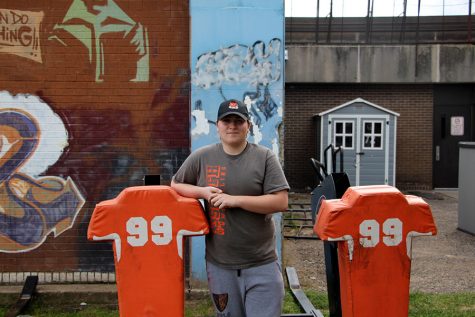
Spencer Kimball is ready to take on his second year on newspaper. He joined as a junior unintentionally, but couldn’t be more excited to spend his senior...

